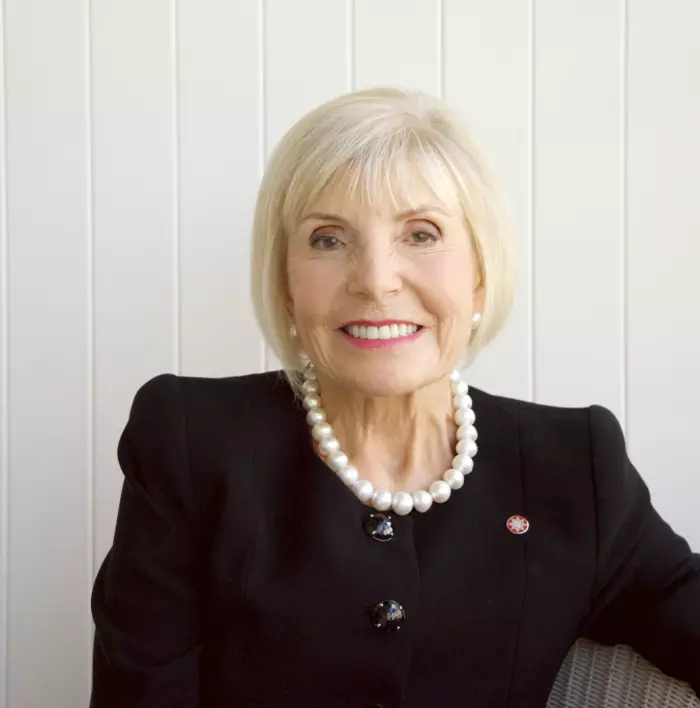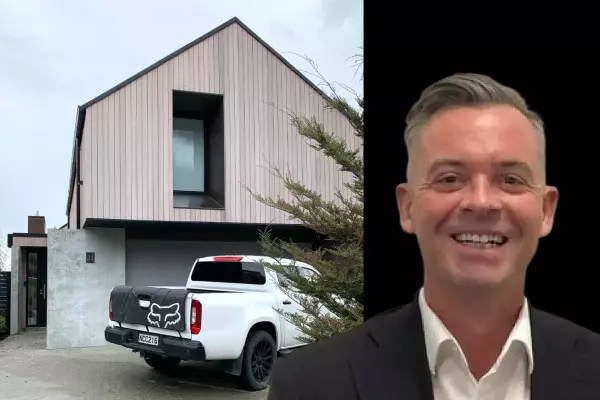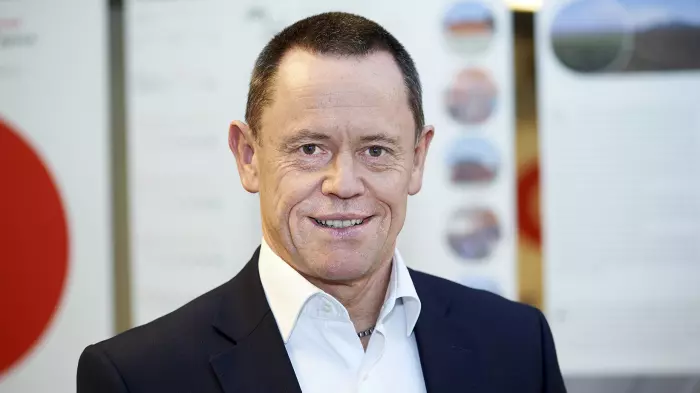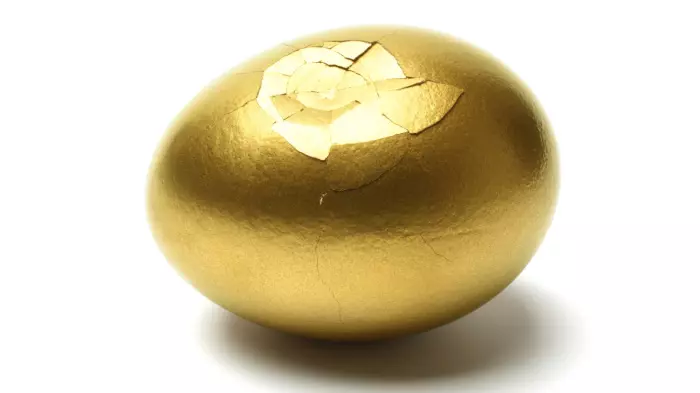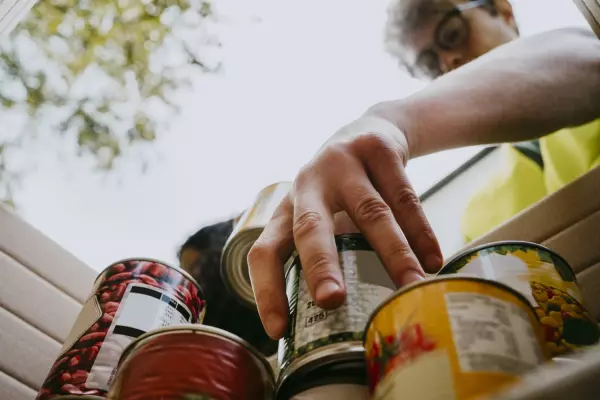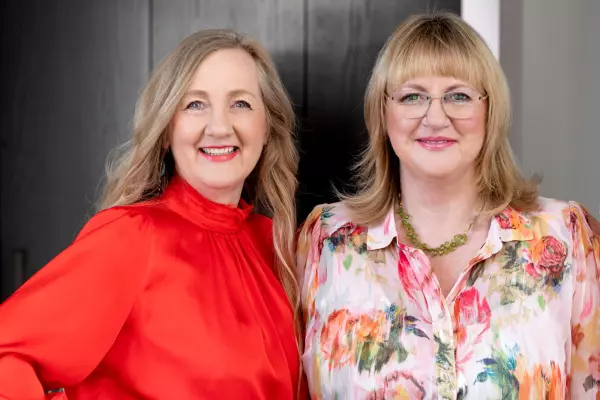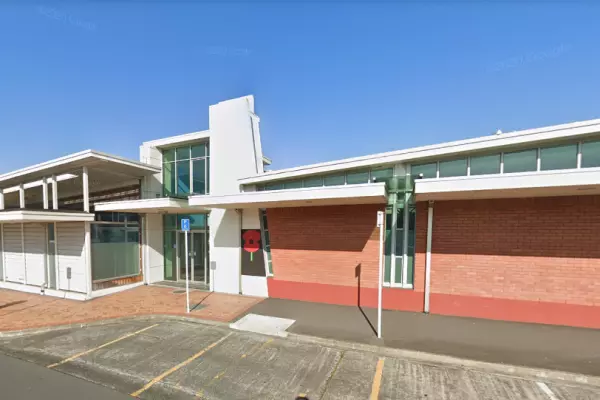Dame Rosemary Horton wears her philanthropic heart well and truly on her sleeve – so much so, that at 82 she's still coming to grips with the idea she might be entitled to slow down a little and learn to say the word “no” more often.
But one thing she makes no bones about is her dame moniker. She says she's humbled and “immensely proud” of her Queen’s Birthday Dame Companion of New Zealand honour but she refuses to let it define her. It's only for formal occasions and then only if absolutely required.
Horton was made a Dame Companion of the NZ Order of Merit in 2011 in recognition of four decades of philanthropy, ranging from fundraising to mentoring and patronages of charities, big and small. She also received a Queens Service Order in 1993 and Queen’s Service Medal in 2004 for community service in the charities sector.
“I’m just Rosie Horton,” she says.
Even plain Rosie will do.
“If I were to introduce myself as a dame it could possibly open some doors to funders, but it can also put up barriers to others,” she says.
It’s almost as if someone feels obliged to call me out of respect because they have been told to.
“It is hard for people to understand that this makes it less easy for me to fraternise with them.”
Artful persuasion and mentoring
Horton has many strings to her philanthropic bow.
There’s the determined businesswoman who would sit outside a chief executive’s office until they made donations just “to get rid of me”. There’s the stylish hostess networking seamlessly among prospective donors at big and small fundraisers.
Then there’s the mentor, ready to answer the phone from anybody seeking advice about setting up the right sort of charity, the best way to ask for funds or simply to clarify what they really want.
“It may be a small charity thinking of combining with others, but has run out of ideas,” she says.
“I never tell people they have to do this or that. I only give advice and have learnt to be thoughtful, not dogmatic.”
She prefers human rather than digital contact because it produces a “fertilisation of ideas from all over the place”.
“I am what you call a people person. I am happiest talking to people.”
She was far from happy, though, when contact was cut with her NZ network after she and her husband Michael found themselves unable to return to NZ from their Queensland home for two years during the covid pandemic.
Beginnings
When she was in her 40s, Horton immersed herself in the charitable sector so she could travel with her husband without the constraints of a job. At the time he was managing director of the Wilson & Horton newspaper stable, publisher of the NZ Herald.
She had left a job at UEB, where she computerised the company’s library and lectured about it.
Her kickstart came from Lady Margaret Myers (the late Sir Douglas Myers’ mother) when she told her she couldn’t just sit at home and do nothing with her life and that she had to give back.
“I learned so much observing her and how she managed her life and work. I never did look back.” Horton says.
Ethical fundraising
Her focus over four decades has largely centred on concerns affecting women, children and health.
When she's fundraising, she has a strict mandate about what is deemed "ethical" funds and what is not. She won an award for ethical fundraising.
“People have to know the origin of money that they are receiving, so they can be sure it is an ethical fix,” she says.
“Back in the dim, dark ages one of the biggest ethical problems was liquor and cigarette companies making substantial donations to charities.
“We had to find other ways they could help if we could,” she says.
This included looking to see if they had associate companies not involved in manufacturing products that could cause the illnesses charities were created to combat.
“My mother smoked like a chimney and died of breast cancer.”
Horton is the patron of several charities, including the Breast Cancer Foundation, where she was also a former chair.
Mothers and children
She's told this story before but Horton still tears up, leaving a pause in the conversation before she regains her composure.
When she was sitting on a ledge outside the Starship Children’s Hospital in Auckland, she saw a young woman sobbing so she went over to her to ask what was wrong.
The woman had travelled up from Invercargill by car and ferry to the hospital because her child was possibly dying.
“It broke my heart,” she says.
She quickly found the solution in a fundraiser to pay for flights between Invercargill and Auckland so the mother could often visit the child, who sadly later died.
Heart-warming tales fill her life.
She got involved in the Raukatauri Music Therapy Centre, for instance, after meeting singer and songwriter [Dame] Hinewehi Mohi whose child, Hineraukatauri had cerebral palsy.
“I looked at her and how she was coping with needs for her child and others and fell in love with her and the work."
Horton is a patron of this charity which provides music therapy to children and young people with special needs.
She says her philanthropic pursuits are like Topsy. They just grew.
“One thing leads to another. Nothing is planned.
“I’m adaptable and resourceful but always focus on the cause, the people who can benefit and the people who are trying to make a difference.
“I like to think of myself as someone who is very kind and has never lost the ability to be inspired.
“I don’t want accolades, because I love being involved."
She admits that there are times things can come back to haunt her, but if there's a problem, she will deal with it.
Aboriginal art passion
Rosie and Michael Horton have collected more than 300 pieces of contemporary Aboriginal art that are carefully curated in just about every spare bit of space in the Queensland home they own, along with their Auckland property.
Rosie says Michael would dearly love to put the brakes on her art spending but to date has largely been unsuccessful.
This collection will eventually become another philanthropic offering when it's donated to the Art Gallery of NSW in Sydney.
“When we do that, I think it would be quite nice to have an apartment across the road so we could visit it frequently," she says with a laugh.
Advice for future philanthropists
Horton says if she could give one piece of advice it would be to “do a huge purge” of existing charities.
“There shouldn’t be all these charities,” she says, saying too many are doing the same thing, such as various breast cancer charities.
“If there were fewer, they would be stronger.
“It is too easy for someone to leave money to create a little charity when they could be giving more to an existing charity.
“Charities have to be adaptable and be able to cope with continually changing issues.
“The people who run them also have to be kind, be open to all ideas and never have a closed mind on anything.”


